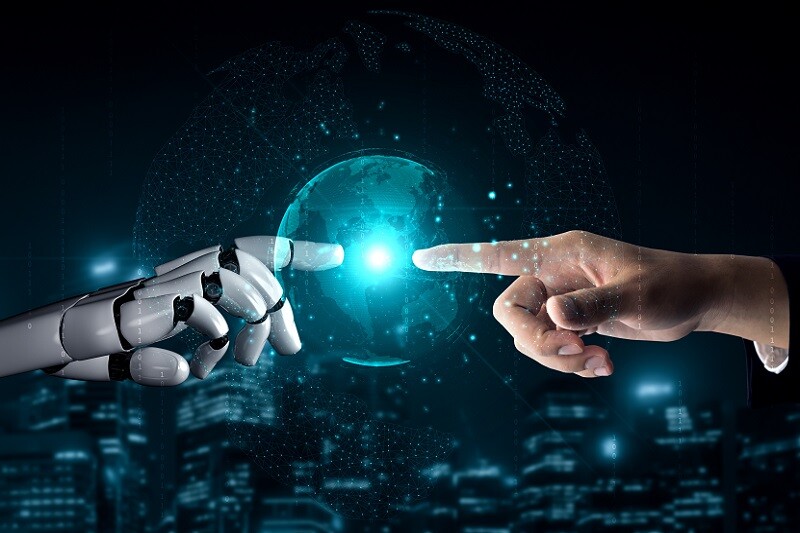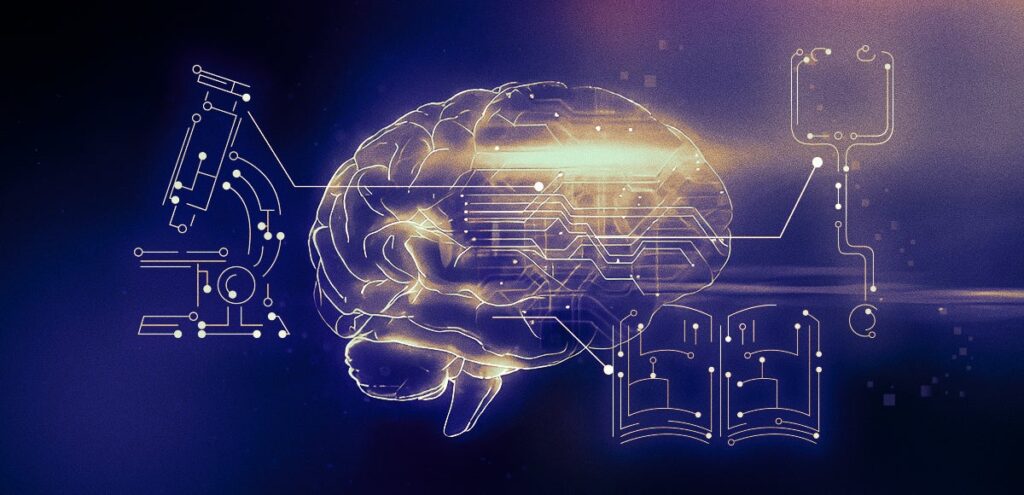Looking for an AI app review? Sure, I’ll give an exact, two-sentence perspective on it.
AI apps are transforming the way we live and work, simplifying tasks and driving innovation. By leveraging impressive technology and algorithms, these apps are reshaping industries and creating new opportunities. For businesses and individuals alike, AI apps offer the potential for efficiency, productivity, and advancement in various spheres.
With their growing presence, it’s essential to assess their capabilities and impact, which is where a comprehensive review becomes valuable. In this review, we’ll dive into the functionality, benefits, and potential drawbacks of AI apps, shedding light on their contributions to the technological landscape. Whether you’re a tech enthusiast, a professional seeking automation solutions, or simply curious about the latest advancements, this review will provide insightful analysis to guide your understanding and decision-making.

Credit: www.linkedin.com
Introduction To Ai Apps
Introducing AI apps is exciting, as they are revolutionizing the way we interact with technology. In this blog post, we will delve into the world of AI apps, discussing what they are and why they have become so popular in recent years.
H3: What are AI apps?What Are Ai Apps?
AI apps, also known as artificial intelligence applications, are software programs that utilize AI technologies to perform tasks that typically require human intelligence. These apps leverage machine learning, natural language processing, and other AI techniques to analyze data, make decisions, and automate processes.
H3: Why are AI apps becoming popular?Why Are Ai Apps Becoming Popular?
The popularity of AI apps can be attributed to their ability to enhance efficiency, productivity, and user experience across various industries. With their capacity to streamline operations, personalize interactions, and offer intelligent insights, AI apps have become indispensable tools for businesses and consumers alike.
Benefits Of Using Ai Apps
AI apps offer a multitude of advantages, catering to various needs of individuals and businesses. From enhancing efficiency and productivity to facilitating improved decision-making and delivering personalized user experiences, AI apps revolutionize the way we interact with technology and achieve our objectives.
Enhanced Efficiency And Productivity
AI apps streamline processes and automate repetitive tasks, allowing users to focus on high-value activities. By leveraging advanced algorithms and machine learning, these apps can analyze data, identify patterns, and perform complex calculations at a rapid pace. This leads to significant time savings and increased operational efficiency.
Improved Decision-making
AI apps empower users with data-driven insights and predictive analytics, enabling them to make well-informed decisions. Through real-time analysis of large datasets, these apps can identify trends, risks, and opportunities, helping individuals and organizations make smarter choices that drive positive outcomes.
Personalized User Experience
AI apps leverage user data and behavior to deliver personalized experiences tailored to individual preferences. By employing recommendation engines and predictive modeling, these apps can anticipate user needs and offer relevant content, products, or services, resulting in higher satisfaction and engagement levels.
Popular Ai Apps In Various Industries
Introductory Paragraph: Artificial Intelligence (AI) has revolutionized various industries, offering innovative solutions and transforming the way businesses function. Among the advancements in AI technology, AI apps have gained immense popularity due to their ability to streamline processes, enhance decision-making, and improve overall efficiency. In this article, we will explore some of the most popular AI apps across different industries, highlighting their key features and benefits.
Healthcare
The healthcare industry has greatly benefitted from AI apps, which have significantly improved patient care, diagnosis, and treatment processes. AI-powered healthcare assistants have the ability to provide personalized health recommendations based on individual characteristics and medical history. These apps can also analyze large volumes of medical data to detect patterns, predict disease outcomes, and assist in medical research. Moreover, AI apps enable healthcare professionals to remotely monitor patients, enhancing accessibility and reducing costs.
Finance
In the finance sector, AI apps have played a pivotal role in automating routine tasks and streamlining operations. These apps can analyze financial data, detect anomalies, and predict market trends, providing valuable insights to investment professionals. AI-powered chatbots have also become increasingly popular, revolutionizing customer service by providing real-time support, answering queries, and assisting with financial transactions. Additionally, AI apps have improved risk management by identifying fraudulent activities and minimizing errors in financial operations.
Retail
The retail industry has witnessed a significant transformation with the integration of AI apps. One of the key applications is personalized recommendations, where AI algorithms analyze customer preferences and behaviors to suggest relevant products, enhancing the shopping experience. AI-powered virtual assistants are another valuable tool, offering personalized customer support and helping users navigate through product catalogs. Furthermore, AI apps enable retailers to optimize inventory management, forecasting demand, minimizing stockouts, and reducing costs.
Transportation
In the transportation industry, AI apps have revolutionized logistics, improving efficiency and reducing operational costs. AI algorithms can optimize route planning, considering various factors such as traffic patterns, fuel efficiency, and delivery deadlines. AI-powered predictive maintenance apps help monitor vehicle conditions, enabling proactive maintenance to prevent breakdowns. Additionally, AI apps have been instrumental in enhancing passenger safety by analyzing data from various sensors and predicting potential risks or failures.

Credit: medium.com
Challenges And Limitations Of Ai Apps
The challenges and limitations faced by AI apps are vast, hindering their full potential. Issues such as data privacy, ethical concerns, and accuracy limitations continue to pose obstacles in the development and deployment of AI applications. However, with ongoing advancements and careful regulation, the future of AI apps holds promising possibilities.
Although AI apps offer remarkable capabilities and potential, they also come with their fair share of challenges and limitations. It’s crucial to acknowledge these factors to understand the boundaries within which these apps operate, including data privacy and security concerns, ethical considerations, and reliance on accurate data.
Data Privacy And Security Concerns
One of the primary concerns surrounding AI apps is the protection of user data and ensuring its privacy and security. With the vast amounts of personal information being processed and stored by these apps, there is a legitimate worry about potential breaches and unauthorized access to sensitive data. As we rely more on AI apps, it becomes crucial for developers to prioritize robust security measures to safeguard users’ information from cyber threats and maintain their trust.
Ethical Considerations
As AI apps evolve and become more pervasive, ethical considerations become increasingly important. These apps have the potential to make decisions and take actions autonomously, leading to questions about accountability and the ethical framework they should abide by. Developers must address concerns related to bias, fairness, transparency, and the potential for harm caused by AI apps. Setting ethical guidelines ensures these apps contribute positively to society and align with societal values.
Reliance On Accurate Data
AI apps heavily rely on accurate and high-quality data to deliver meaningful results. The algorithms used by these apps require vast amounts of data to learn, analyze, and make predictions or recommendations. However, if the data fed to these apps is flawed, incomplete, or biased, it can impact the accuracy and reliability of their outputs. Developers need to emphasize the importance of data quality and establish robust methods for data verification, validation, and cleanup to ensure the effectiveness of AI apps.
The Future Of Ai Apps
In today’s fast-paced digital world, the rise of artificial intelligence (AI) has revolutionized many industries, including the world of mobile applications. AI apps are becoming increasingly integral to our daily lives, with their ability to mimic human intelligence and perform complex tasks. As we look ahead, the future of AI apps holds great promise and potential. Let’s explore some of the key developments that are shaping this future.
Advancements In Machine Learning
One of the most exciting aspects of AI app development is the advancements in machine learning. Machine learning algorithms enable AI apps to continuously learn from user interactions and improve their performance over time. These algorithms analyze vast amounts of data to identify patterns, make predictions, and provide personalized recommendations. This technology not only enhances the user experience but also enables AI apps to adapt to changing needs and preferences.
Integration With Internet Of Things (iot)
Another key trend shaping the future of AI apps is their integration with the Internet of Things (IoT). The IoT refers to the network of interconnected physical devices that collect and exchange data. By combining AI technology with IoT devices, AI apps can access real-time data and seamlessly interact with our environment. This integration opens up a world of possibilities, from smart home automation to personalized health monitoring. AI apps can analyze data from various IoT devices to provide valuable insights and automate routine tasks, making our lives more convenient and efficient.
Potential Impact On Job Market
As AI apps advance, there is speculation about their impact on the job market. While AI technology undoubtedly offers numerous benefits, it also raises concerns about job displacement. Some fear that AI apps could replace certain tasks traditionally performed by humans, leading to unemployment in certain sectors. On the other hand, AI apps also have the potential to create new job opportunities, especially in the field of AI app development and AI-related services. As the technology evolves, it will be crucial to navigate this potential impact on the job market and ensure a smooth transition.

Credit: medium.com
Frequently Asked Questions Of Ai App Review
Can Ai App Help Improve Productivity?
Yes, Ai App can improve productivity by automating repetitive tasks, managing schedules, and providing data-driven insights for better decision making.
Is Ai App Compatible With All Devices?
Yes, Ai App is compatible with various devices including smartphones, tablets, laptops, and desktops, ensuring a seamless user experience across different platforms.
How Secure Is The Data Stored In Ai App?
Data stored in Ai App is encrypted and securely stored in cloud servers, ensuring the highest level of security and privacy for users’ personal and sensitive information.
What Features Does Ai App Offer?
Ai App offers a wide range of features including task management, intelligent reminders, personalized recommendations, collaboration tools, and analytics for performance tracking.
Conclusion
To sum up, this AI app review has shed light on the countless benefits and possibilities this technology brings to the table. With its advanced algorithms and machine learning capabilities, the app has proven to be a valuable tool for businesses and individuals alike.
Whether it’s automating tasks, enhancing communication, or improving decision-making, this AI app has the potential to revolutionize the way we work and live. As technology continues to evolve, it is important to embrace and leverage the power of AI to stay ahead in the ever-changing digital landscape.




